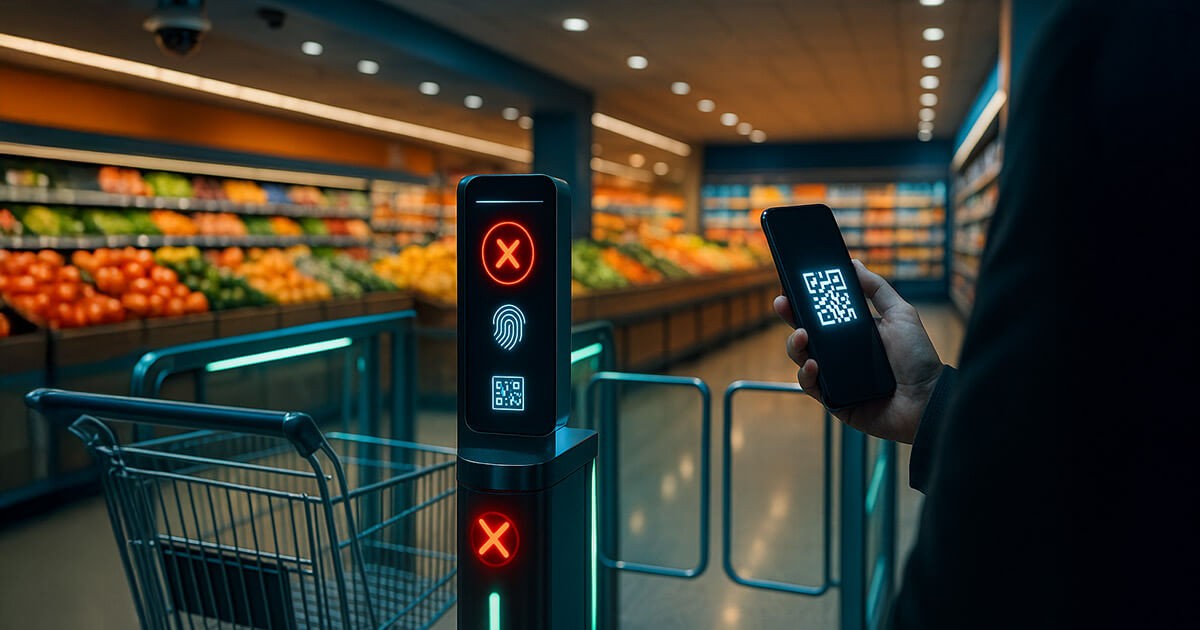No Digital ID, No Food: A 2025 Road to Digital Control Stretching from Beijing to London
There’s an old phrase: the road to hell is paved with good intentions. In 2025, that road is digital—scanned, CCTV-clogged, and increasingly inescapable. From Beijing to Berlin to London, governments are rolling out digital identities that promise convenience and security, but they come at a cost far more profound: our freedom. The road ahead looks efficient, but it is also a corridor to control, where participation in daily life—buying food, commuting, or posting online—depends on a state‑issued digital identity.

In This Article:
Global rollout: When identity becomes the key to participation
Across the globe, governments are moving toward digital identities that promise convenience and security while tightening the perimeter around everyday life. In China, the Citizen Credit Reset is fully live: citizens must use a state‑issued digital ID to buy food, ride the subway, access the internet, or open social media accounts. The system consolidates years of fragmented surveillance into a single nationwide database where every transaction is tied to a unique personal identifier. What began as a ‘social credit’ concept has hardened into a cold, efficient gatekeeper: no digital ID, no participation. Critics call it a ‘point of no return,’ arguing it hardwires a level of control no free citizen can consent to. Other governments are sprinting down the same path under different branding.

Checkpoint society: civil libertarians warn of gatekeeping at every turn
In the United Kingdom, Prime Minister Keir Starmer announced a compulsory digital identities scheme as central to immigration and national security. Citizens without a government-issued ID will reportedly be unable to work in the country. The system is projected to be mandatory by 2029 and would store personal and citizenship data on mobile devices, with digital credentials required for employment, taxes, and access to public services. Civil liberties groups, including Big Brother Watch, describe it as a “checkpoint society.” They argue that once identity verification becomes the gate to basic needs—food, healthcare, transport—the wedge between belonging and exclusion grows thinner. China has already seen failures in facial recognition tied to IDs that prevent some people from purchasing food, illustrating the peril of gatekeeping power.

Brussels and the privacy paradox: programmable money and mass surveillance by design
Brussels is charting its own dystopian course with the digital euro—Europe’s planned central‑bank digital currency. Officially, the aim is efficiency and inclusion, but analysts from Polytechnique Insights and Neobanque warn it could enable “programmable money”—funds that can be monitored or restricted depending on policy. The European Central Bank promises privacy levels comparable to cash, yet critics remind us that digital systems are, by design, inherently surveilled. The EU’s Chat Control proposal—set to vote this month—would mandate message‑scanning across encrypted platforms, including Signal, WhatsApp, and Telegram. Signal’s Meredith Whittaker has said she would rather withdraw from Europe than compromise encryption, underscoring the tension between safety and private communication.

From model to architecture: choosing freedom in a world of digital IDs
China may be the model, but the trend isn’t confined to any single regime. If every transaction, message, or purchase requires a state‑issued ID, even “trustless” systems like Bitcoin and decentralized protocols such as Nostr become lifelines, not options. The convergence of digital identities, central‑bank currencies, and forced data scanning is shaping an architecture of total compliance. The question isn’t whether this system works; it’s whether we want it. Technology isn’t inherently authoritarian; governance is. The antidote is not nostalgia, but preparation: embrace decentralization, adopt censorship‑resistant platforms like Nostr, and use self‑custodied currencies like Bitcoin before the option quietly disappears. History won’t remember those who kept calm, complied, and carried on—it will remember those who chose to opt out while they still could.


